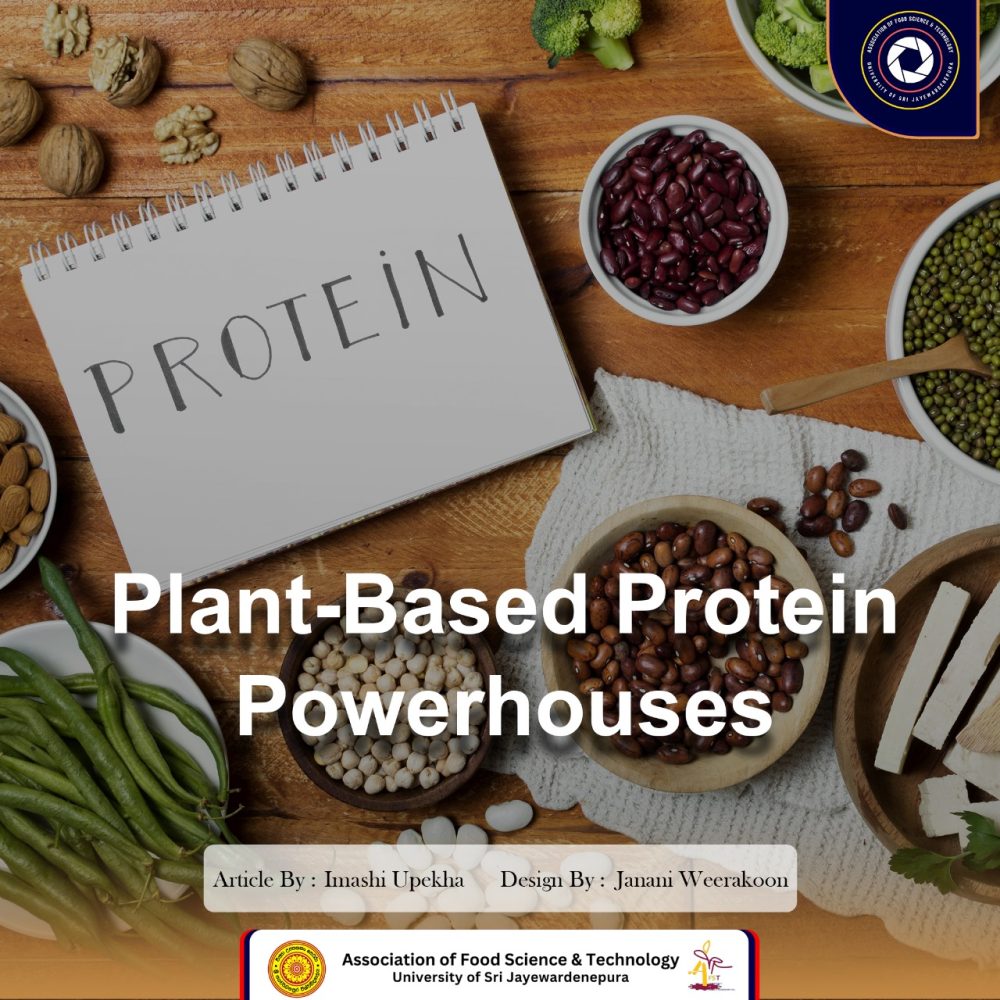
Protein is a large complex molecule that plays many critical roles in the body. Proteins do most of the work in cells and are required for the structure, functions and regulation of the body’s tissues and organs. Proteins are made from small units called amino acids, which are attached one to another in a long chain.
Recently, plant protein is increasingly being used as an economical and alternative replacing animal source in human nutrition as well as functional ingredients for product formulations. There are some plant-based protein sources that can lead to a high-quality protein, including legumes, cereals, nuts and seeds.
Legumes
Legumes are plants belonging to the family Leguminosae, also called Fabaceae. Common legumes used for human consumption include peas, lentils, soybeans, sprouts, mung beans, green beans. The consumption of legumes can fulfill the majority of essential amino acid requirements as well as they have high lysine content. But several researches have shown that legumes as a limited source of sulfur amino acids like methionine, cysteine as well as tryptophan.
Cereals
Cereals are commonly consumed globally for both human and animal nutrition, with rice, wheat, corn, and barley being the most prevalent. Rice is widely consumed all over the world. The major storage proteins of cereal are prolamins and glutelin. Rice and oats have low concentrations of prolamins. They contain high quantities of essential amino acids for human including lysine.
Seeds and nuts
Seeds protein provides the major source of protein for human nutrition. Flaxseeds are a rich source of high-quality protein, fibers and phenolic compounds with a favorable profile of essential amino acids to human nutrition. It contains appreciable amounts of sulfur-based amino acids, such as cysteine and methionine.
Nuts have considerable variation in the content of essential and non-essential amino acids. The total protein content of some nuts is relatively high. Peanuts, walnuts, almonds, cashews have the highest protein content. The sulfur amino acids, such as methionine and cysteine are also found in low amounts in nut protein. Phenylalanine and tyrosine are present in significant amounts in the protein of all nuts.
Importance of plant protein
Plant- based proteins play a major role in the human diet as they are rich in numerous other nutrients, vitamins and minerals. Foods derived from plants increase protein content, including various essential amino acids, and can enhance the nutritional quality of human diets. Sulfur containing amino acids such as methionine and cysteine play a vital role in maintaining the immune system functioning and also the peroxidative protection mechanism in the muscle, nervous and cardiovascular system. Lysine is important for bone calcification, liver activities, nitrogen balance inside the body and muscles and blood synthesis. Valine helps in the coordination of motor cells. Leucine and isoleucine are assisting as building blocks of other proteins. Some studies show that people who often rely on plant protein are at lower risk of certain diseases including cancers, type 2 diabetes, hypertension, obesity. Plant-based proteins help to lower LDL cholesterol level and reduce blood pressure, which can lower the risk of heart disease.
Plant proteins are generally more environmentally sustainable than animal proteins. Growing plants usually requires less water, land, and energy compared to raising livestock. Plant-based proteins have a lower carbon footprint compared to livestock farming, which produces significant amounts of methane and other greenhouse gases. Additionally, plant-based agriculture tends to result in lower levels of pollution. On the other hand, animal farming often leads to manure runoff, which can contaminate water supplies and contribute to ecosystem degradation.
Novel healthy plant-based protein products
Soybean is one of the most utilized legumes. Soymilk, cheese and yoghurt are excellent dairy substitutes for vegan and lactose intolerant individuals. Soy-corn milk, a product produced from a mixture of soymilk and sweet corn, is also available.
Nowadays, plant protein-based egg substitutes are available on the market. Some studies showed that plant protein-based egg substitutes include more calories, total fats, polyunsaturated fat, sodium and carbohydrates than real eggs but less saturated fat. And also, vegan chocolate is available on the market. These chocolates were made using plant-based milk instead of dairy. In recent years, plant-based cakes and bakes have become increasingly popular with the introduction of new vegan eggs replacements, plant-based milk and butter.
In conclusion, plant-based proteins offer a sustainable, health-conscious alternative to animal- derived proteins. They provide essential amino acids, are often rich in fiber and other nutrients, and generally have a lower environmental impact. By incorporating a variety of plant-based proteins into our diet, we can achieve balanced nutrition while supporting overall well-being and environmental sustainability.
Article by: R.M. Imashi Upekha Rathnayaka (2nd year)
References
Sá, A.G.A., Moreno, Y.M.F. and Carciofi, B.A.M. (2020). Plant proteins as high-quality nutritional source for human diet. Trends in Food Science & Technology, [online] 97, pp.170–184. Doi: https://doi.org/10.1016/j.tifs.2020.01.011.
Marcone, M.F. (1999). Biochemical and biophysical properties of plant storage proteins. Food Research International, 32(2), pp.79–92. Doi: https://doi.org/10.1016/s0963-9969(99)00061-7
Chandran, A.S., Suri, S. and Choudhary, P. (2023). Sustainable plant protein: an up-to-date overview of sources, extraction techniques and utilization. Sustainable Food Technology. Doi: https://doi.org/10.1039/d3fb00003f.
Langyan, S., Yadava, P., Khan, F.N., Dar, Z.A., Singh, R. and Kumar, A. (2022). Sustaining Protein Nutrition Through Plant-Based Foods. Frontiers in Nutrition, 8. Doi: https://doi.org/10.3389/fnut.2021.772573.
